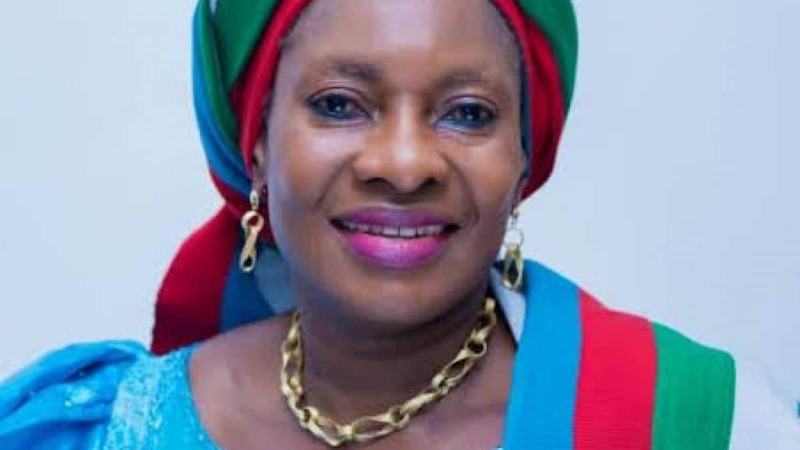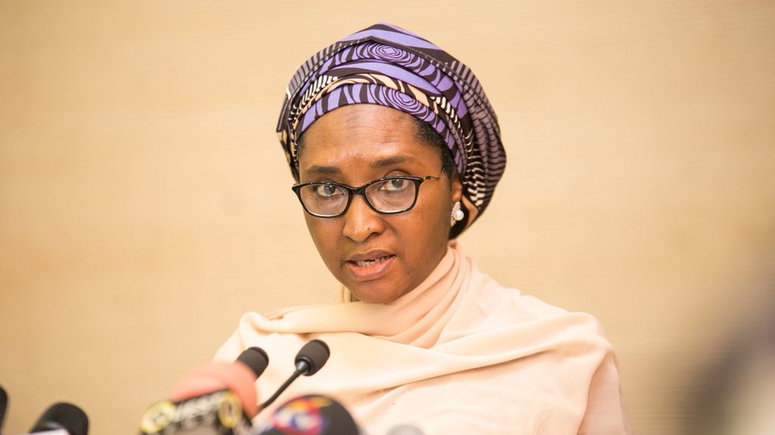COVID-19: “Can Africa Afford Lockdowns?” by Chukwuma Charles Soludo CFR

This piece summarizes my contribution to an African debate. From Johannesburg to Lagos, Cairo to Dakar, Kinshasa to Kigali, Nairobi to Accra, etc the debate on how Africa should respond to the global coronavirus (Covid-19) pandemic is raging. At an African regional policy platform, I had expressed some of these (personal) views some weeks ago but have been encouraged by most members to circulate them in Africa beyond the platform.
This year 2020 begins a new decade that promises to be one of dreadful disruptions, with Africa holding the weakest end of the stick. In 2008/09, the global “great recession” was triggered by financial crisis in the US (world’s largest economy). Then, much of Africa was said to be decoupled from the crisis and muddled through without severe devastation of its economies. This year, a global health pandemic that has paused the global economy and certain to rail-road it into synchronized recession (if not depression) was triggered by the second largest economy, China. Unlike before, multilateralism and global coordination framework are at their weakest. National (local) self-defence is the rule. As before, the rich world with its generous welfare system and huge financial war chest, is taking care of itself (the US alone has US$2.2 trillion stimulus package). Africa is left to its fate.
Covid-19 caught the world totally unprepared, and with no proven and available medical response. Ad-hoc cocktails and learning-by-doing constitute the strategic package. In most western countries, the cocktail of response has included a coterie of defensive measures including: border closure; prepare isolation centres and mobilize medical personnel/facilities; implement “stay at home” orders or lockdowns except for food, medicine and essential services; campaign for basic hygiene and social distancing; arrange welfare packages for the vulnerable; and also economic stimulus packages to mitigate the effects on the macro economy.
Many African countries have largely copied the above template, to varying degrees. Piece-meal extensions of “stay at home” or lockdown orders as in many western countries have also been copied in Africa. But the question is: can Africa really afford lockdowns, and can they be effective? Put differently, given the social and economic circumstances of Africa and the impending ‘economic pandemic’, can Africa successfully and sustainably defeat Covid-19 by copying the conventional trial-and-error template of the western nations? In confusion and desperation, the world seemed to be throwing any and everything at the pandemic. Recall President Trump’s assertion that hydroxychloroquine “might help”? The evidence so far (from limited sample) is that it probably actually worsens the disease. The trial and error have left huge human toll and economic ruins, and there is still no solution.
Let us be clear: no one can blame African policymakers for the initial panicky copy and paste response some weeks ago. No public officer wanted to be blamed for doing nothing or not doing what others were doing. After these initial pilot schemes, it is now time to ask the deep question: Is this the right approach for Africa?
All lives matter and African governments must do everything to protect or save every life from the pandemic. The challenge is how. Africa faces two unsavoury options: the conventional template, including lockdowns versus heterodox (creative local) approaches without lockdowns. Both have risks and potential benefits. Sadly, people will still get the disease and die under both approaches. People will differ on the choice, depending on what is on their decision matrix: data, resources, subjective preferences, and interests, etc. I focus on which option (on a net basis) is achievable in the short to medium term, consistent with our social and economic realities.
Our thesis is that lockdowns in Africa suffer time-inconsistency problem without a credible exit strategy; is unaffordable and could potentially worsen the twin pandemic—health and economic—in Africa. We call for Africa to press the reset button now, mainstream its collective, simple, smart learning-by-doing solutions that could, in the end, be the African solutions for export to the world. Covid-19 won’t be the end of techno-economic disruptions or health pandemics even in this decade: this is an opportunity to think without the box—to engender greater self-confidence in our capacity to think through our problems, with authentic sustainable solutions.
Let me illustrate why I believe that a strategy that includes lockdowns/border closure is the worse of the two options given our social and economic realities. (Recall that China isolated Wuhan, and kept Shanghai, Beijing, and other major economic engines open, and today, China supplies the world with medical equipment, face masks, etc and raking-in hundreds of billions of dollars). The idea of a lockdown (and border closure) implies that you will continue to do so (with extensions) until such a time that you are satisfied that the spread of Covid-19 has been arrested or on the decline (with the possibility of imposing another round of lockdown if new infections surge). That is the catch: lockdown for as long as required to stem the spread. The length of time required for such lockdowns to ensure “effectiveness” in arresting the spread would make it near impossible in much of Africa. If the strategy is to lockdown until infections stop/significantly decline or so, then we would have a suicidal indefinite waiting game.
First, monitoring the spread requires effective testing, and Africa cannot afford effective testing of its 1.3 billion people. New York State, with a population of 20 million and a budget of $175 billion, is pleading with the US Federal Government to assist with testing kits and facilities. Check out the number of testing centres and facilities in each African country relative to their populations. A joke in the social media narrated that the health minister of Burundi was asked to explain the miracle in his country whereby the number of infections was reported as zero. His response was: “it is simple: we don’t have any testing kits”. Besides, there is stigma associated with the infection, and on the average Africans only go to the hospital as the last resort. There are also asymptomatic cases, and only the critically ill ones will report. So, there will always be massive under-testing, and gross under reporting.
Furthermore, social distancing in most parts of Africa will remain impractical. From the shanties in South Africa’s townships to the crowded Ajengule or Mararaba in Abuja/Nasarawa, or Cairo or Kinshasa to the villages and poor neighbourhoods in much of Africa, social clustering, not distancing, is the affordable, survivalist culture. Communal living is not just about culture, it is a matter of economic survival. Hence, the statistics on infections will be coming in fits and stats: shall we be locking down and unlocking with each episode of surge as there may probably be several such episodes (unless and until a cure is found)? Even with over four weeks of “stay at home” or lockdowns in some African countries, the reported daily infections continue to rise. Some may argue the counterfactual that without the initial lockdowns, the number of infections could have been multiples. It is a reasonable conjecture or anecdote, albeit without any proof. The question is the end game for a poor society such as Africa? New infections have re-emerged in Wuhan, and both Singapore and South Korea are going back to the drawing board. Since we cannot sustain lockdowns indefinitely or even until the spread stops/declines, it means that we would sooner or later remove the restrictions. What happens then? There would still be infections, which can still spread anyway. Why not then adopt sustainable solutions early enough without weeks of avoidable waste and hardship? Let us think this through!

Next, African states cannot pay for lockdowns. Many countries depend on budget support from bilateral and multilateral donors, and with acute balance of payments problems. They do not even have leg rooms to simply print money. Most are now begging for debt relief and applying for urgent loans from the IMF and the World Bank. In Africa, both the governments and the people are begging for “palliatives”. The most that African states and their private charities can do is “photo charity”—with much fanfare, drop a few currency notes or grains here and there for some thousands when millions are in desperate need, just to be seen to have “done something”. At a fundamental level, most African states do not have credible demographic data to identify and target the most vulnerable. In the western societies from where we copied the lockdown/border closure, their citizens are literally paid to stay at home (by silently dropping monies into their accounts plus other incentives). Check out the trillions of dollars, Euros, and pounds in support to the vulnerable and stimulus packages. Despite these, check out the restiveness/protests in several of these countries and the unrelenting pressure to eliminate the restrictions (even in countries where thousands are dying each day due to Covid-19). Given that no government in Africa can seriously pay for lockdowns, over one billion Africans are left to survive if they can or perish if they must.
Without government support, no more than 5% of Africa’s 1.3 billion people can possibly survive any prolonged lockdown on their own finances. Most of the others have no assets or savings to live on for any prolonged period, and there is no social insurance (welfare system). Without the pandemic, the African economic space is already in dire straits, with unacceptable unemployment rate (especially youth unemployment) as well as endemic poverty. In 2007, I evaluated the structure of deposits in Nigerian banks and found that only 8% of the bank accounts had balances of N300,000 (over $2,500 then) and above, and these accounted for 95% of the total deposits. The remaining 92% of bank accounts had 5% of total deposits. I understand that a recent study showed that only 2% of bank accounts had N500,000 (about $1,300) and above. Also imagine the dependency burden on this 2%. The dearth of infrastructure (basic electricity is deficient) makes compulsion to stay at home hellish for most people. We have lockdowns in Africa but without pausing several pressures for private expenditures on the people: monthly house rents; banks’ interest payments for micro, small and medium enterprises (MSMEs), electricity charges, etc.
With some 80% of Africa’s population living from hand to mouth on daily toil and hassle, complete lockdown would never be total, almost impossible in our social settings. In most cases, the orders simply create opportunities for extortion for the security agencies: those who pay, move about! Attempts to force everyone into a lockdown for extended period may indeed be enforcing a hunger/stress-induced mass genocide. More people could, consequently, be dying out of hunger and other diseases than the actual Covid-19. In normal times, thousands die every day in Africa due to other illnesses and communicable diseases—cholera, malaria, lassa fever, lower respiratory infections, diarrhoeal diseases, tuberculosis, heart diseases, stroke, HIV/AIDS, yellow fever, zika virus, measles, hepatitis, typhoid, small pox, Ebola, Rift valley fever, monkey pox, chikungunya virus, pregnancy and child-birth related deaths, renal failure; pneumonia, etc.
Lockdowns worsen these as many of the victims of these now have little or no cash to attend to themselves. Soon the pharmacy shops will run out of imported drugs. Even local pharmaceutical manufacturing firms need imported inputs but cannot efficiently source them under lockdowns/border closure (even more so with restrictions in China and India). Soon local, adulterated ones may fill the gap. A summary point is that the millions of persons in the street, who are struggling between life and death each day with numerous other challenges do not, and will never, understand why so much additional hardship is being foisted upon them because of the novel coronavirus. For most of them (wrongly though), it is an elite problem since for them, the “hunger/other disease virus is more dangerous than corona virus”. The hungry and desperate millions may be forced to take desperate actions to survive, and little surprise that crime has spiked in several African countries with lockdowns.
What many do not seem to appreciate is that African economies are facing their worst economic condition in decades. Commodity prices have fallen dramatically, and for oil producers, the situation is precarious. IMF predicts that aggregate Africa will fall into a recession this year (the first in over two decades) but possibly rebound next year. For oil producers, it all depends on what happens to oil prices in the coming months and how they creatively craft a plan to transition to the world with little or no oil. If appropriate measures are not taken quickly, some oil producers may slide into depression. But border closures/lockdowns that dramatically affect the labour market and supply side (as well as demand side) of the economy will only worsen the situation, especially with little or no room for effective fiscal/monetary stimulus. Government revenues will be severely affected.
Thousands of MSMEs will die under the weight of formal and informal loans, bills (rents, electricity, wages, interest, etc) that continue to accumulate under lockdowns as well as low demand for their goods and services. Some countries are busy “announcing” fantastic figures of helpline for the MSMEs (and much of it will end at the announcements) but without a clear path to address the legacy burden on the firms— the persisting bills! Most of the owners of the MSMEs will probably consume their business capital during the lockdowns, with no clear helpline afterwards. The US Senate just passed a bill for $484 billion “More Small-Business Stimulus”, including a $320 billion “Paycheck Protection Program” to enable small businesses pay their staff salaries for two months. This follows the exhaustion of earlier $350 billion for small businesses under the $2.2 trillion stimulus package. The above is just an example of what western countries from whom we copied the lockdown strategy are doing for their MSMEs—which Africa cannot afford.
Millions of poor farmers will be hard hit. Their perishable products that need the informal public transport to reach the cities will be wasted; while millions that need transport to their farms cannot do so. Agriculture in Africa is rain-fed and seasonal. Lockdowns during the planting season could threaten food security in months ahead. Inflation will shoot up in many African countries, and with critical food shortages later. Manufacturing firms need imported inputs, machinery, and spare parts. Countries under lockdowns are consuming their old stocks. Even after lifting the lockdowns/border closure, it may take months for normalcy to return in some countries.
Each day that any of the major African economies stays under lockdown costs Africa billions of dollars in lost income but with debatable benefits. Given its financial and structural weaknesses, Africa does not have the luxury of using the same “conventional tools” of the western countries in the face of the twin pandemic. At the minimum, Africa needs its full population (its most important asset) working at full throttle to have any chance of defeating the impending economic catastrophe.

What should Africa do?
We should think African but act locally and opportunistically to survive and prosper, and exploit the global opportunities offered by the crises. Every shock or pandemic presents opportunities. Solutions need to be multidimensional, far beyond economics and western medicine. Ad-hoc response will be a wasted opportunity. Africa needs a package for creating sustainable prosperity in a world of continuous techno-economic-health disruptions. Such disruptions will become the new normal in the decades ahead, and we should better get used to that. Only societies that anticipate and plan for such disruptions will opportunistically exploit them, while others mourn and blame the shocks. The way we work, socialize, meet etc will not be the same after these crises. Welcome to the decade of rapid creative destructions!
As a first step, African countries should urgently dismantle the border closures as well as the stay at home/lockdown orders. Hopefully, some useful data were gathered, and lessons learnt that will help in crafting simple, smart, and sustainable heterodox responses. Africa cannot afford lockdowns that will prove ineffective anyway.
Opening Africa does not mean abdication of responsibility by the governments. Governments should lead in the mobilization, education, and possibly equipment of the people to take personal responsibility for their safety; mainstream the African spirit of community/collective action by mobilizing the churches, mosques and civil society organizations to lead in the public education and mobilization; and finally for the government to do its utmost best in providing public healthcare. An enduring lesson of this pandemic is that African countries must take public healthcare seriously. There will be future health pandemics and we should better get ready today. Professionals, religious leaders, CSOs and community leaders should be mobilized to agree on simple, smart solutions consistent with our financial and social realities. Our western and local (herbal) medical experts and research institutions should all be mobilized to come up with solutions. Those with pre-existing conditions might receive special treatment. The president of Madagascar is reported to have announced that his country has found its own cure for Covid-19 and has ordered schools also to reopen. The west is still on a trial-and-error mode, and why shouldn’t we experiment as well? Africa fought and survived Ebola without lockdowns and we can do even better this time.
Our model should be learning-by-doing while mainstreaming basic common-sense tips such as: mandatory wearing of masks in public, basic hygiene, disinfection of all open markets every early morning and all places of public gatherings, practical social distancing tips, provision of hand washing facilities in public places, production and use of hand sanitizers, gloves, etc. For example, all public transport vehicles—taxi, buses, trains, airplanes might require disinfection of the vehicle before use, and for all passengers to wear masks and with hand sanitizers. Can you imagine the thousands of jobs to be created in producing face masks, hand sanitizers, gloves, etc for 1.3 billion people? But this cannot happen under a lockdown. New opportunities! Everyone wants to live, and Africans will learn and adapt quickly. Staying at home will become a choice, not a compulsion. The slogan could be: “stay at home if you can, or smartly go to work if you must”. We can only defeat the challenge by confronting it, and not by playing the Ostrich only to still confront it the day after.
Every African society has some local herbs that, to use President Trump’s phrase, “might help”. While the UK and others are experimenting with vaccines, you never know if an Africa herb might be the cure. Necessity is the mother of invention, and only those who dare, succeed! With enough education and mobilization, the infection rate will be drastically reduced without pausing the lives of 1.3 billion people.
The real challenge is the potential economic catastrophe that many African economies face. How policymakers respond depends on how they interpret the shocks: as temporary or permanent structural shifts. But howsoever they choose to see it, one thing is certain: several more similar shocks (not necessarily in exact form) are on the way.
What is evident so far is that most African policymakers (typically) think of the shocks as temporary, and consequently seem to believe that they can just stimulate their way out of it and wait for the next one. African multilateral financial institutions (e.g. AfDB and Afreximbank) have announced packages to assist Africa ride over the shocks. The World Bank and the IMF have provided quick disbursing windows for us to borrow. African finance ministers have called for moratorium on debt servicing, and most have applied for the cheap loans from Washington. Several African countries have “announced” intervention funds that, at best, constitute a drop in the ocean relative to need. The buffers and institutions for dynamic adjustments are weak or absent. In most countries, subnational governments are pleading for bailouts from their cash-strapped central governments. Many of these subnational governments will soon realize that they are basically on their own, and many could become fiscally insolvent.
After most African countries empty all their piggy banks now, and borrow their full tranches at the Fund and the World Bank, secured moratorium on existing debt etc, what happens with the next disruption in a few years’ time? Or like the African musician, Oliver de Coque sang: “let us enjoy life today, and after that we can worry about tomorrow”? But that tomorrow is a few hours away. Because of these crises, many African currencies (especially the oil producers) might likely depreciate significantly. Servicing these external debts tomorrow with the exchange rate then, would require heavy lifting. But it is difficult to see how a competitive real effective exchange rate regime will not be a critical component of their comprehensive strategy for diversification and global competitiveness.
Politicians with short-term electoral cycles typically have short time horizons or suffer policy myopia. This is not just an African problem. It is a typical problem of multiparty democracies with short term electoral cycles and term limits. However, extreme cases abound in some African states especially because the civil service (that ought to ensure longer term continuity) is very weak. With eyes on the next election, opportunistic populism wins. Rather than confront the underlying structural dysfunction, the easiest escape is to pile up debts and contingent liabilities. This is the circularity that has brought Africa to the present embarrassment whereby barely some years after massive debt cancellations/reliefs from our creditors, we are again pleading for “debt relief”. But several future shocks are on the way. When and how can African countries escape this circular trap? This is a short question but with a long answer. Each country’s economic/development team should get to serious work.
For the countries that see the shocks as signalling structural shifts (which it largely is), the focus should be on exploiting the opportunities offered by the crises to press the re-set button. It requires a realistic diagnosis and admission that the existing business model has been rendered obsolete. Crafting a new business model that encompasses the whole range of institutional, technological, structural, macroeconomic, and even politico-governance arrangements takes time and demands for disruptive thinking. It would require mainstreaming creative non-debt-creating financing options and new forms of economic partnerships. But these require longer-term perspectives and a form of inter-generational planning. There lies the conflict versus the opportunity and points to what separates politicians from statesmen. Politicians think of the next election, while statesmen think of the next generation. We pray for Africa’s political statesmen (a seeming contradictory combination—be a politician and statesman at the same time). That is why I strongly support the re-opening of all of Africa urgently, and let all hands get to work to help them succeed
The Insight Report
Nigeria Coverage



